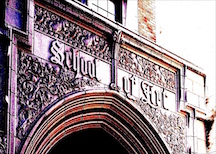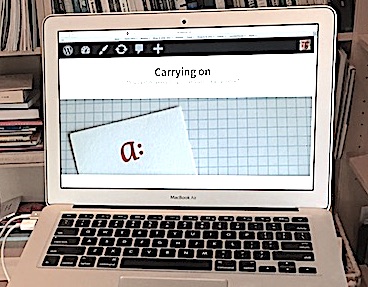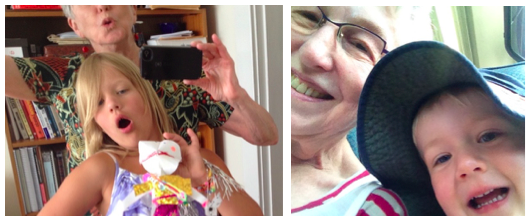The Jini Dellaccio Project’s first year
The Jini Dellaccio Project encourages a redefinition of life after 70, the “wise-ager” years. It calls attention to the potential of this phase of life and to the value of using and sharing experience gained by wise-agers over many decades. The Jini Dellaccio Project is a three-year experiment funded by a gift exchange. I have a contract with Artist Trust to help define and manage the project and to provide an example of a wise-ager life. We are in the midst of the project’s second year. What follows is a report on some of what happened during the first year.
September 1, 2017

July 2016 to June 2017
A year of living with this gift had a big impact on the way I used my time. I loved having the open-ended flexibility to learn and adapt as I went without needing to be sure I was paid for what I did. It opened up the possibility that what happened might surprise me, and others too. It freed me up to do much of the work I’m doing now.
Office Hours Last fall I began offering a twice-monthly schedule of “office hours.” This started as a way to try out my new role, and it continues as an open invitation to anyone who wants to talk with me about anything. Both Artist Trust and I periodically announce the program, and the slots fill up. Anyone interested contacts me or makes a date using an online scheduling app that Artist Trust set up. I wanted the lightest structure possible; the schedule and the name “office hours” are as formal as it gets. Better terms for these conversations might be coffee breaks, happy hours, tea time, or chit chat for trying out someone’s own new ideas or discussing whatever’s on their mind. The stories, ideas, and sometimes dilemmas that people bring range widely. I feel privileged to be brought into their lives this way and never know at the outset what I might have to contribute. I’m often surprised to discover what it is that turns out to be useful. What started as an experiment has settled down to be something I love having in my life.

Like the other activities that have come from the Jini Dellaccio Project, the office hours are not designed to make money. In fact, part of what makes them work is that they aren’t part of a market exchange. No one who schedules an office-hours slot has to start by figuring out if they can afford to pay me, and I can show up with an open mind and no pre-planned materials, ready to discover what’s on their mind and to share whatever seems valuable from my own experience. And the learning is always two-way. We both take a risk and then trust that it will be a good conversation. This allows us a freedom to respond in the moment and take our talk wherever it leads. The spontaneity and our ability to change course would not come as naturally if a meter were ticking.

Alum in Residence Last summer (2016), Jamie Walker (director, UW School of Art + Art History + Design) and I created a new, year-long Alum in Residence position at the school. I was given an office (a major gift since “real estate” in the art building is dear) and many other privileges of being an official part of the school’s program. Through the academic year, I kept fairly regular hours, visited classes when invited by a faculty member, and organized a conversation with David Mendoza about his life since graduating with a UW art history degree 50 years ago. The largest project I undertook involved working with a small team of interns who sorted through the records of Arts Wire, an early online network I started in 1989. Not only did we inventory the contents of many banker boxes, but the intern team helped bring the material to life and relate it to our world today through two exhibitions – one in the coffee shop, one in the gallery – an Instagram account, essays posted on the web, and a podcast series about what they learned, for which they interviewed people around the country who had been involved.
Jamie went through all the institutional hoops necessary to establish the position, but, given the constraints of the school’s budget, one hoop he couldn’t leap through was finding money for it. The Jini Dellaccio Project gave me the flexibility not to require it. Being unpaid is its own kind of benefit: the position is an experiment, and I was given a lot of latitude to figure out what it could be. I’m also happy that plans are underway to continue the experiment with another graduate. I’m sure the next Alum in Residence will bring to the role their own ingenuity, life circumstances, and past experience.

“Carrying on” Writing is a thread that winds through all the messiness and many directions of my past and present life and work. As part of the Jini Dellaccio Project, I made a commitment to write – specifically, to regularly add pieces to this website, Carrying on. I consider it to be “writing in public,” meant to be read by others. Like many people, a long string of half- and almost-completed pieces fill paper and digital folders, and I have many little books and odd pieces of paper full of ideas I want to explore in writing. I finally decided that, if not now, when? This project and the challenge to figure out how best to use this phase of life gave me the shove I needed to keep it going. And writing is real work. The truth of Thomas Mann’s words becomes clearer every day: “A writer is someone for whom writing is more difficult than it is for other people.”

Grandma Anne Recently I realized that the Jini Dellaccio Project also made it easier for me to step in and spend time with my grandkids Livia and Henry, relieving pressure on their parents while giving me the chance to be “Grandma Anne.” I’ve often made the case, on behalf of other parents, grandparents, and friends with aging parents, that, paid or not, caretaking is real work. I’ve never believed that work has to be onerous to qualify as real. My time with Livia and Henry is most often full of joy, it’s sometimes invisible, sometimes demanding, but always essential. Having time this last year was especially meaningful because in late August they moved from Seattle to Kansas City.
What’s next?
The coming year’s work is beginning to take tangible shape, but it’s still very much in motion and alive. Among other things, it will play out against the backdrop of the times we’re living in. Our political, economic, and social systems are racked, and I still struggle to find my role in it. I’ll keep writing, I’ll maintain my office hours, I’ll continue hosting and participating in conversations both with others and on my own. I also want to explore whether and how this project might continue after me to benefit others. I plan to keep living as one example of the difference the role and support of a project like this can make, and I’ll approach its next phase with an open-ended attitude similar to the one I started with . . . making it up, alone and with others, as I go.

The Jini Dellaccio Project is fiscally-sponsored by Artist Trust in honor of photographer Jini Dellaccio.
![]()
1 Comment